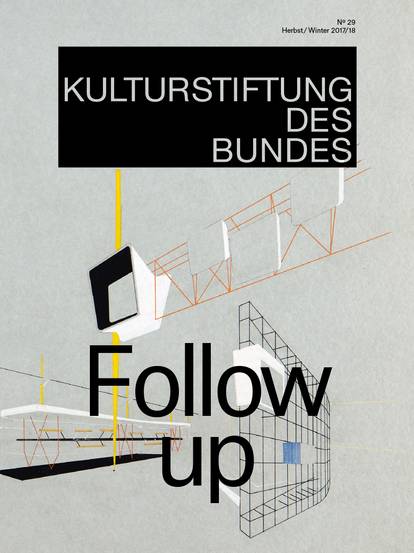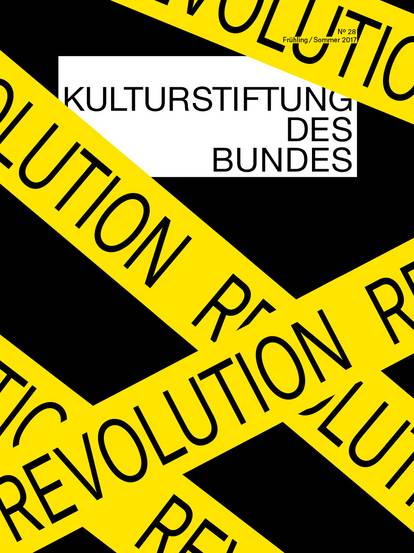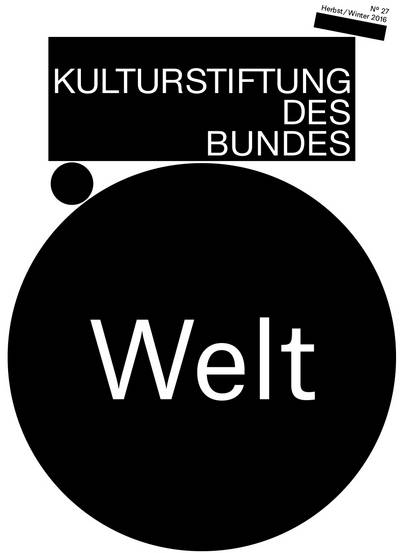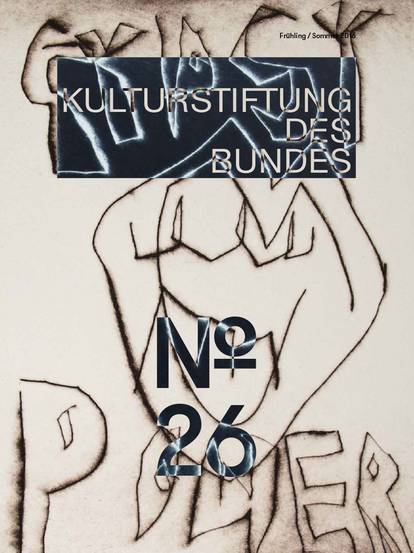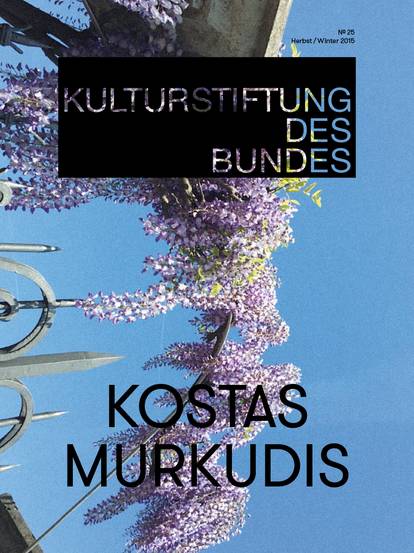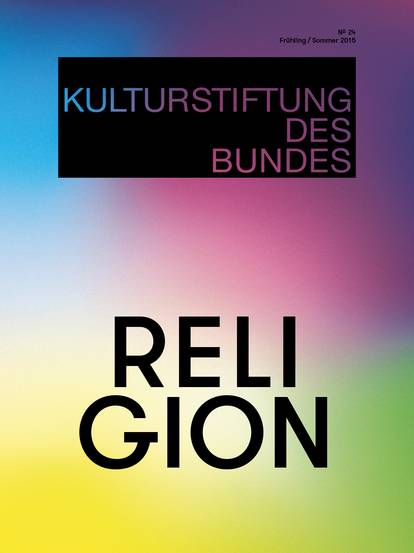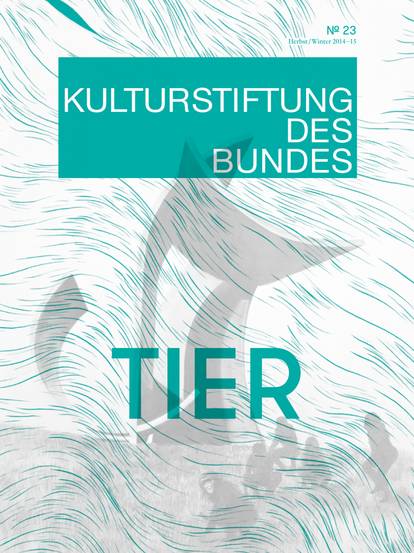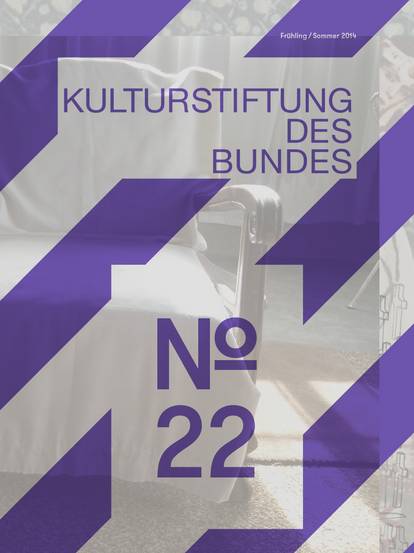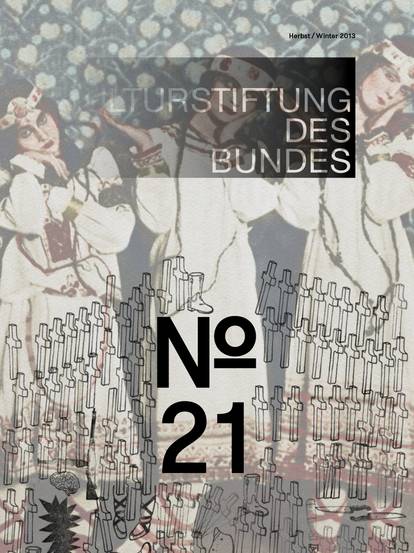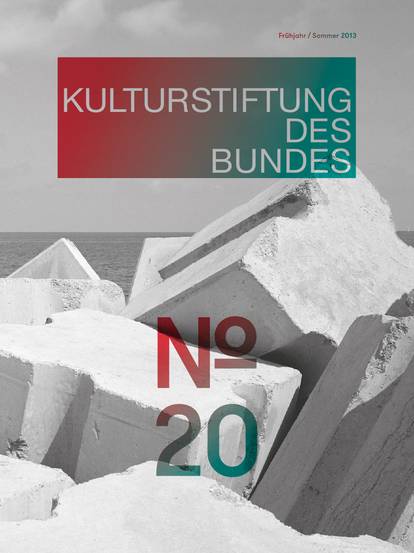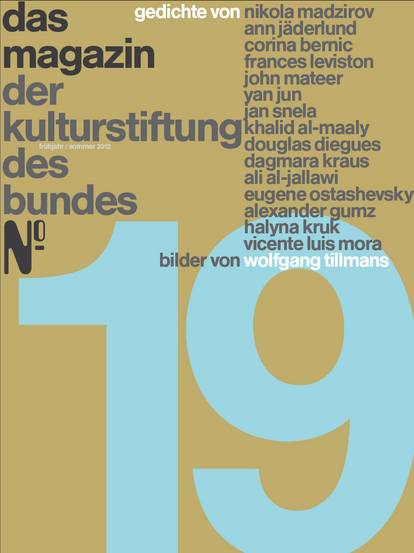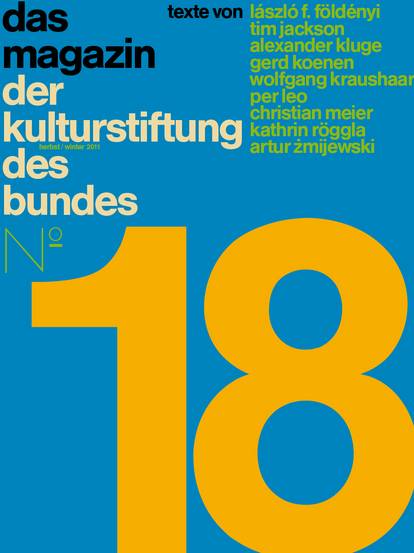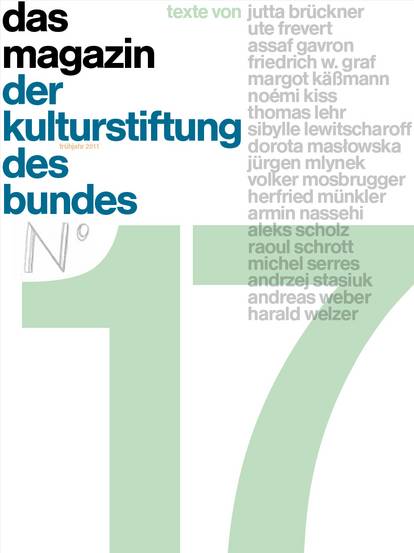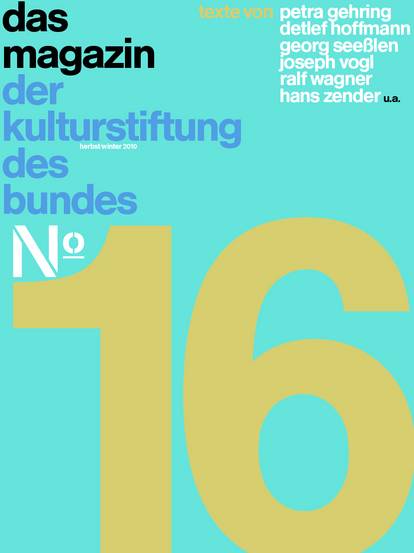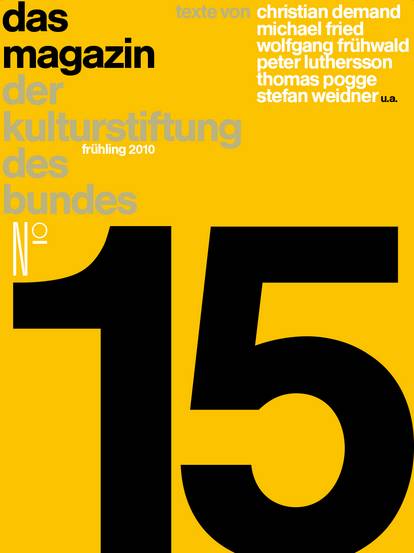Ms Salzmann, Mr Czollek, you are both young Jews living in Germany. We also see many young Israelis moving to Berlin. On the other hand, such authors as Mirna Funk and Yascha Mounk have written books about how and why they’ve decided to leave Germany. Is being Jewish in Germany a burden?
Czollek: Let me be very Jewish and start with a joke I got from Sasha. Question: Why don’t Jews take pain relievers? Answer: Because it could make the pain go away! Being Jewish is always a burden. That’s why living in Germany isn’t really a problem, it’s actually extraordinarily Jewish. At the individual level, Jews do ask themselves what type of conflicts they are willing or unwilling to endure.
Salzmann: People in Germany can’t even say the word “Jew” without wincing for fear of what it could imply, an insult, a reference to the victims, or the perpetrators. So this might be a burden to others, but it isn’t for me. When talking to people, wearing the Star of David around my neck and with my open attitude to my culture, I’m often confronted with the question of how much further we must go to achieve normalisation. But getting there is worth it.
How does your self-image differ from that of your parents?
Czollek: When I compare myself to my parents’ generation, I would say our perspectives and objectives are not all that different. Perhaps I have less of that fear which is expressed by the stereotypical packed suitcase or bolted locks on the door. But there’s something else that plays a central role: I’ve been socialised in Jewish institutions – from the first grade to the thirteenth grade at the Jewish School in Berlin and then again near the end of my studies and for the entire duration of my doctoral programme. This is a situation which has not existed in Germany since the Second World War.
Salzmann: My parents lost their jobs for being Jewish, they were physically attacked and politically persecuted. They didn’t want us children to be confronted with this reality and so they tried to walk the fine line between assimilating and cocooning themselves in what they were familiar with. They didn’t consciously distance themselves from other cultural circles. They lived as Jews among Jews, that was the nature of the beast, as they say, in the Soviet Union. In any case, that’s what they told me – it was a position I was quite sceptical of. For my part, I wished that we were all internationalists, cosmopolitans that didn’t need any markings, any labels for what we are, and that we could come together as human beings. But I hadn’t had any experience with structural exclusion in everyday life, it was “only” a tale I heard from my parents. That all changed as soon as I came to Germany.
Ms Salzmann, you frequently refer to ‘shifting personalities’ to best describe contemporary identities. Yet at the same time, you identify yourself as a Jew. Is this a constant in a continually shifting identity?
Salzmann: Being Jewish is the opposite of a constant, perhaps it applies to all identities – I can only speak for my own. There is no Jewish culture per se, but there are Jewish cultures. I’m an atheist, I have no connection to Israel, I grew up with Yiddish, mainly with the Chochmes and Jewish literature. We didn’t celebrate Shabbat, but we received the dreidel and mezuzah on almost every occasion. It wasn’t easy to carry out circumcisions in the Soviet Union, but klezmer music was always playing in our flat. A very special Jewish creation which I was able to make my own. What I love about Jewish culture is that it’s not tied to any one country. It flourishes in the most diverse areas, takes on local customs and mixes with them. That’s part of the concept of ‘shifting personalities’. When it comes down to it, identity is a means of transportation and not a destination. My Yiddishness is the vehicle I travel with wherever I go.
What role does your Jewish background play in your life, Mr Czollek?
Czollek: I believe I can best understand my “Jewish” identity by viewing it in the context of how it was created. As long as I was at a Jewish school, I went about the question of Judaism very differently than later on at a German university in a predominantly non-Jewish setting. At first I experienced this difference mainly in terms of varying family histories, then later as a difference in knowledge and perception. Who knows something about Jewish holidays? Who sees new buildings and thinks about the gaps left behind by the bombs? Who notices the small GASAG markers on the sidewalk marked “Gas”. These things have nothing to do with “being Jewish” in the sense of a Jewish essence, but rather refer to a certain environment. That’s why it is no coincidence that my self-image differs from Sasha’s. There is no such thing as the Jews.
In October 2015, Israeli artists living in Germany gathered together for the first-ever “ID Festival”, which was subtitled “In search of new traditions of German-Israeli identity”. How does this relate to “Disintegration”, which specifically levels criticism at the new “German-Jewish Us”?
Czollek: I think both sides are valid in Germany – the hyphenic assertion (Israeli-German) and the criticism of being Jewish for Germans. For Jewish Israelis it’s interesting, especially with respect to the political weight Germany carries in Israel, to explore the possibilities of a German-Israeli identity. The concept of disintegration, however, evolved from a background of socialisation as a Jew in Germany. “The Jews” in Germany have an unusual problem: they are too important! Not only has the extermination of the Jews become the pars pro toto of the heinous crimes of National Socialism, the memory has also established itself as a (national) German paradigm of commemoration and identity. “The Jews” have become a central element in the construct of a modern German non-National Socialist identity. As a “Jew”, I fulfil certain requirements for Germans when I speak out against anti-Semitism, state my position to Israel, recite the Kaddish when a “Stolperstein” is laid[i], or put my arm around Germans because they’re grieved about their SS grandpa or the deeds of the German people.
Salzmann: You see, I have a problem with equating Jews with Israelis. As far as I know, many people live in Israel – not only Jews – but whenever there’s an event which should display unity regarding certain historical processes, for example, guilt and forgiveness, Jews are the only ones who are meant, and I don’t want to be a part of it. I can’t say anything about the German-Israeli identity, because I cannot join the conversation about the kind of “new traditions” these two countries wish to develop together. The “Disintegration” congress will disrupt the desire for harmony in this homogeneous narrative, and I’m looking forward to that. At the congress, I’ll be interested in showing the diversity that comes with the label “JEW”, those unnoticed moments, the surprises, the marginalia. I regard our congress not as criticism of the “German-Jewish Us”, because frankly I’m not familiar with such a thing.
On the occasion of the 50th anniversary of diplomatic relations between Germany and Israel, the German Federal President Joachim Gauck said that there is no German identity without Auschwitz as there is no Israeli identity without the Shoah. Is there a Jewish identity without the Shoah?
Czollek: Look, the Shoah is used for many things, also in pop culture. When I conduct a poetry workshop, I sometimes do an exercise on primary associations. I tell the participants they’re not allowed to use words in their poems which are most commonly mentioned (for instance, for “love” they shouldn’t use words like red, heart, pain etc.). The Shoah also evokes a similar chain of associations, just think of barbed wired, emaciated people, violins and cattle cars. What I want is to see these images in a functional relationship with a commemorative culture, constructed by the German majority society. But this society has a problem coming to terms with its own memories and positions of its perpetrators. For the Shoah is also a carrier of a multitude of personal associations which probably vary significantly. By means of disintegration, we mean to gain a clearer view of the diverse references that are possible. To put it more pointedly, I’m interested in finding a language to express one’s own history which is not a reaction to the desires of the perpetrators’ descendants and their struggle to create a positive self-image.
Salzmann: Half my life I grew up in a society which didn’t consider the Shoah as integral to Jewish identity. It sounds absurd, for being the “victor of war against fascism” should also include the Shoah, but in fact, what was done to the Jews was no more important than what happened to the communists in the Holocaust. It’s a shift in perspective, a different focus, one always looks for a fitting narrative for one’s role as a victim so as to instrumentalise it for one’s purposes. There are many countries of the former Soviet Union in which the Jewish Holocaust not only fails to be discussed by the respective regional populations to this day, but isn’t even mentioned in history classes. There is, however, knowledge about Jewish identity, and how!
In a taz interview (December 2015) Micha Brumlik attributed the political shift to the right in Jewish communities and in Israel with the arrival of Russian immigrants. There are few points of contact between the Jewish communities and the young Israelis in Germany. Is this a divide that runs along the former East and West German border, or is it rather a generational conflict?
Salzmann: I find it difficult if not impossible to verify Brumlik’s claim. Our ambivalences toward the viewpoints of Jewish communities today certainly have a historical continuity, but one has to also take a look at the changing times. Israel is a different country today than at the time it was founded, and the Russian Jews who have fled from their country, arrive today with a different attitude than back then in 1948. In the same way that there is no such thing as a monolithic image of society, there cannot be a uniform image of community. Take for instance the relationship between German and Eastern European Jews before the Shoah: a mutually critical examination, an evaluation. Hierarchies were created which still linger today – the poor Yidden from the Shtetel and the affluent upper-class Jews from Western Europe. On the other hand, Israeli and Russian Jews sometimes harbour an unspoken accusation as to why and how the German and Eastern European Jews survived – who cooperated with whom to stay alive through the war, who drew up what lists and who was with the Resistance and who was a partisan. These are old wounds which none of us like talking about. But I wish to stress that it’s not simply the Russian Jews versus the Israelis or German Jews, it’s all of us who willingly play a part in the divide et impera policies of a hegemonic discourse.
Czollek: Yes, I completely agree with Sasha and would like to add that the narrative and other resources which have come with the massive waves of immigration from the former Soviet Union and Israel have yet to be adequately addressed and incorporated into the public position of Jewish communities and Jewish society in Germany. If the Soviet-Jewish perspective is “We won the war,” that’s very interesting because it implies that Jews who say this no longer place themselves in the role of a victim, but rather victor. If Israelis want to build a German-Israeli culture, then suddenly they’re no longer victimised Jews who remained in Germany with a bad conscience, but rather Jews who wish to extend a hand to Germany. Jewish victors, Jewish avengers, Inglourious Basterds – such characters are immensely fascinating for ‘queering’ the German commemorative theatre!
One of the expressed aims of “Disintegration” is to forge alliances with other marginalised groups, such as Muslims. Does the experience of marginalisation play a larger role for the identity of young Jews in Germany than, for instance, religion or culture?
Salzmann: Marginalisation can be a part of culture – not that I think it’s a good thing, but constantly dealing with exclusion inscribes itself into the performance of a culture. I do believe that the experience of exclusion can bring the affected groups closer together in reflecting on structural discrimination and fighting against it. Exclusion can take place at many different levels, it can also occur because of gender or economic identity. The “Disintegration” congress is a broad-based invitation to form new alliances. Ethnic background only plays a limited role; it’s about the will to actively develop, rethink and redefine people’s self-images.
Czollek: As we mentioned earlier, I assume that Jews in Germany after 1945, as well as those growing up in the late 1970s are in the very unique position of possessing an unusually close connection to German identity. There is something very tempting about the material and social recognition that comes with being “Jewish for Germans”. I think we should sit down with other marginalised groups and discuss what alternatives there are to such co-opting and what experiences they have gained in and with the German majority society. But with regard to allies, it’s not only marginalised groups we’re referring to, but also allies from the majority culture.
The term “post-migrant”, as you, Ms. Salzmann, have used it on one occasion, describes “an existence in marginalisation without having to have ‘come from anywhere’”. In an interview, writer Olga Grjasnowa claimed that she could only speak for the generation of “young, over-privileged, white people”. Marginalised and privileged – don‘t these traits cancel each other out anymore?
Czollek: I would even say – they never have! We’re all comprised of different aspects – we all have an (assigned) gender, skin colour, economic status, religion, age and medical history. Even if I happen to be privileged in all of these areas, they will eventually change with relative certainty, because I’m getting older, I might have an accident or lose my job. The basis of disintegration is recognising the role of diversity and independence for a functioning democratic order.
Salzmann: “Shifting personalities” also means “shifting contexts”. I would definitely have to be aware of my privileges living somewhere like Turkey where I could enter and leave the country with my German passport anytime I wanted, while my friends with Turkish citizenship could never leave. You can never take your own position for granted, you have to continuously renegotiate it and then decide for yourself what perspective you wish to take before it’s decided for you.
Nonetheless, belonging to a hegemonic order isn’t something I can decide for or reject. Marginalisation is a radical, social mechanism of exclusion. It’s not a question of identity that determines whether one is marginalised or not, it’s an existential one.
It seems paradoxical. Isn’t the discussion about “real experiences of marginalisation” which “Disintegration”, after all, wishes to address, likewise a construction of identity within the German-Jewish problem? Can one prevent being perceived and defined as a victim in this way?
Salzmann: Addressing real experiences of marginalisation is a necessary step in the process of self-empowerment. That certainly doesn’t mean that we’re initiating a discourse of victimhood. For people who are actively affected by racism, anti-Semitism, chauvinism and any form of contempt, their everyday experience is not an intellectual construction that one can decipher.
At the congress, we’ll be developing and discussing strategies of infiltration, gang formation and queer positions, and then search for new narratives. These narratives shouldn’t conceal the status quo, but rather address it in a progressive fashion.
Czollek: Of course, the congress is context-based in terms of how it refers to the current situation and strives to be an intervention. I don’t think you can avoid it, and in fact, we don’t want to. I also don’t think that this juxtaposition is correct – either us Jews for us, or us Jews for Germans! The congress is an exercise in being Jewish, a search for a language and an imaginative space to critically examine what Jewish identity in Germany can mean. The juxtaposition of us and them is absolutely necessary for conducting such a search, but it’s only a performative assertion that ultimately fulfils a strategic function. There is no us, but we assert a counter-position to the majority culture and make it visible as German.
German commemorative culture keeps the memory of the victims of the Holocaust alive as it does the memory of perpetration. Has it become counterproductive in the meantime? How would you like to change it?
Czollek: I’m not interested in changing the present circumstances as I am in the perspectivation. German commemorative culture reflects the process of self-examination of the majority society, which discusses its own perpetrator’s position. That doesn’t mean that the “victims” don’t play a role – on the contrary, they play a very important role on the German commemorative stage. And this role limits the possibilities of what a Jewish take on their own history could signify. What would I change? I would more strongly emphasise the diversity of memories and narratives in a pluralistic Jewish community and compare them with the established interaction between certain Jews/Jewish institutions and a certain German commemorative culture. The result of such juxtaposition would be a public awareness of the diversity of Jewish identities in Germany.
Salzmann: I’m very sceptical of German commemorative culture because for me it often doubles as a proxy debate in which people use arguments to deflect attempts to talk about structural racism in Germany. The logic I’m always being confronted with is: We can’t be racists because we’ve addressed the Holocaust against the Jewish. Put very simply. Such instrumentalisations are brutal and indicate the obscuration of two things: firstly, that racism is a structural problem, on which our entire society is based and from which it profits. It would collapse if we paid reparations to every country, in which we participated in genocide. And secondly, that society cannot collectively process anti-Semitism and be done with it. It is a part of the foundation of the society, in which we live. I’d wish it would be a topic of permanent discussion. Checking it off as “all done” is not enough.
The questions were posed by Friederike Tappe-Hornbostel to the artistic directors of the Disintegration congress.
[i] Translator’s note: “Stolpersteine” are cobblestone-sized blocks made of brass, imprinted with the names of victims of National Socialism, inserted into the sidewalks in front of their former homes in cities throughout Germany.

![[Translate to English:] Magazine 38](/fileadmin/_processed_/f/1/csm_Magazin38_Cover-Vorschau_921x1230_689f428dc3.jpg)
![[Translate to English:] Magazine 37](/fileadmin/_processed_/b/c/csm_Mag37_Cover-Vorschau_921x1230_b5129fdb2a.jpg)
![[Translate to English:] Magazine 36](/fileadmin/_processed_/2/a/csm_Cover_Magazin36__issuu_2f3cef97bb.jpg)
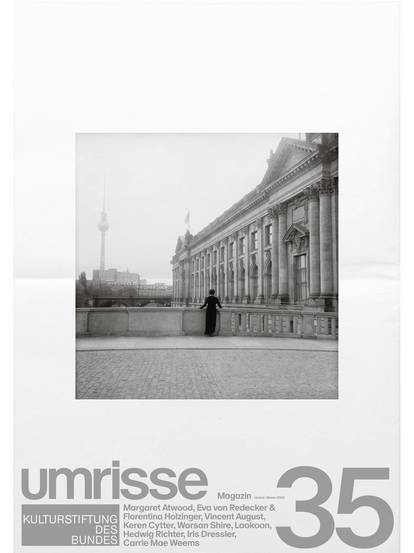
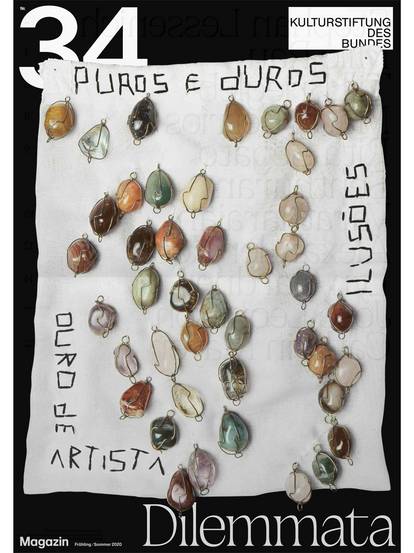
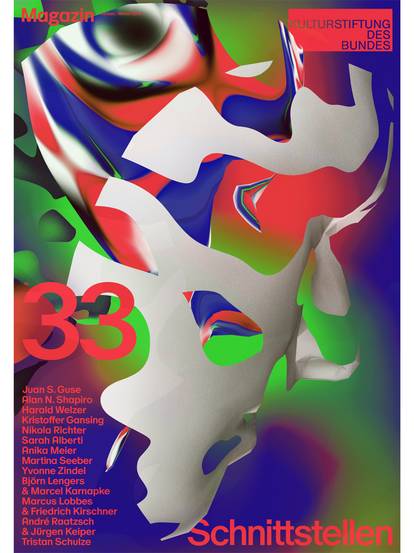
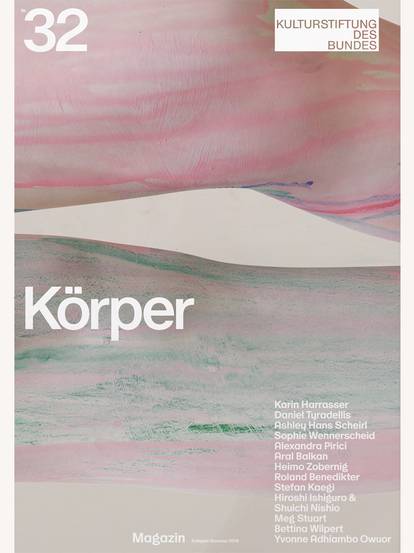
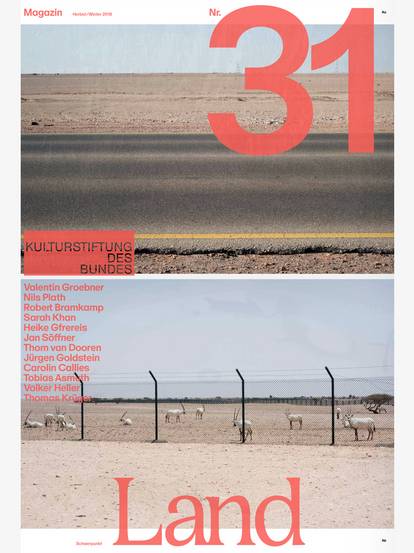
![[Translate to English:] Magazine 30](/fileadmin/_processed_/c/b/csm_magazin30_vorschau_9005f773d3.jpg)
